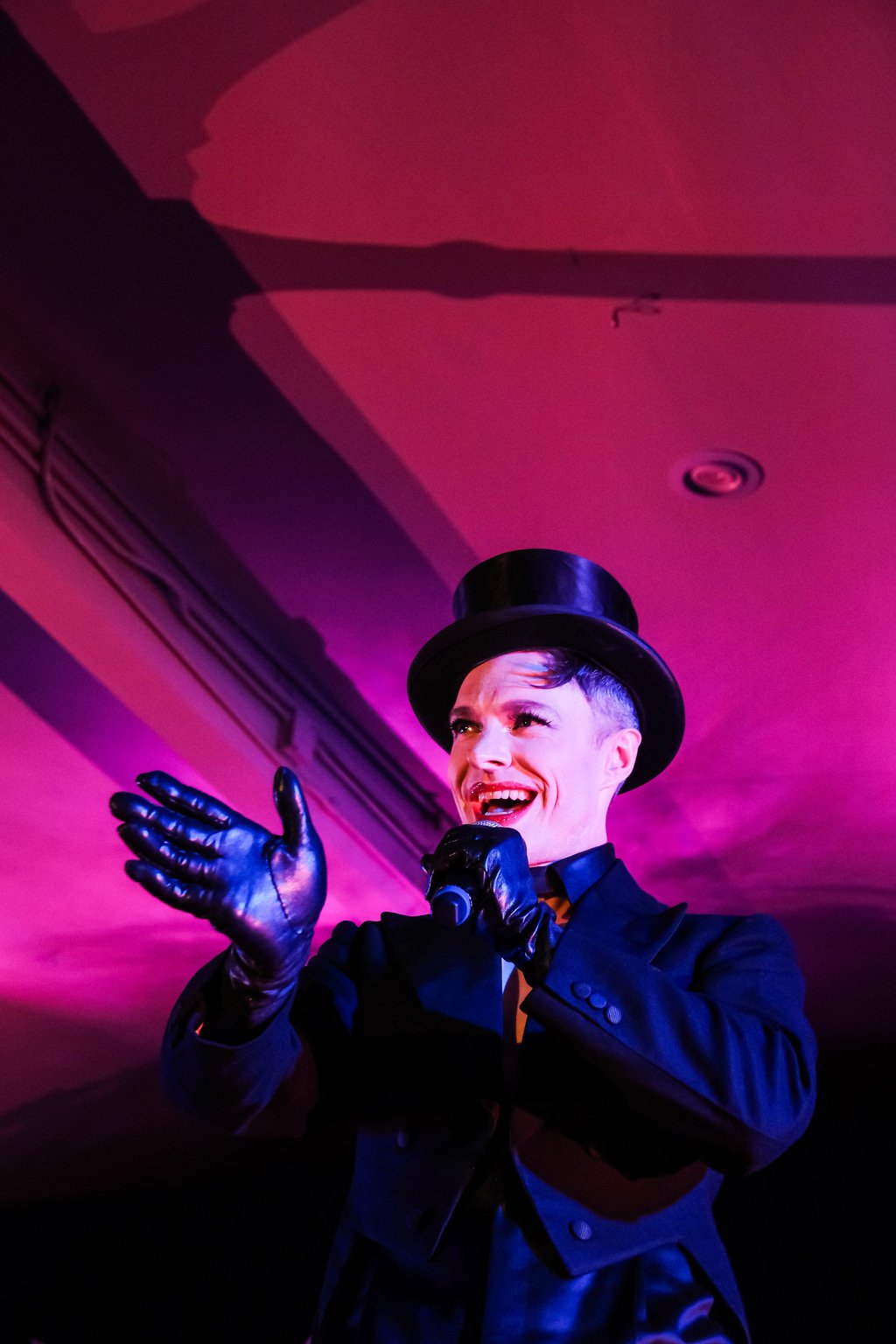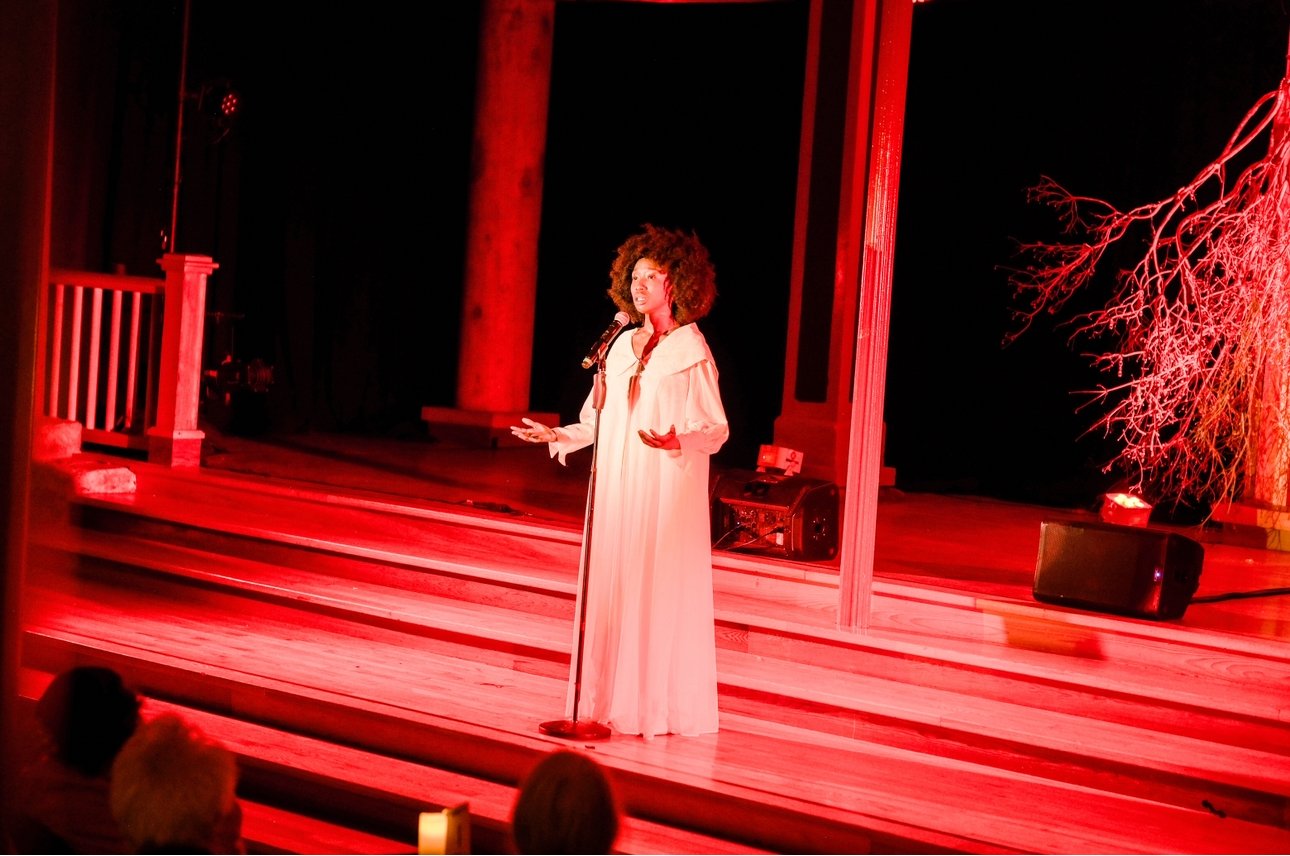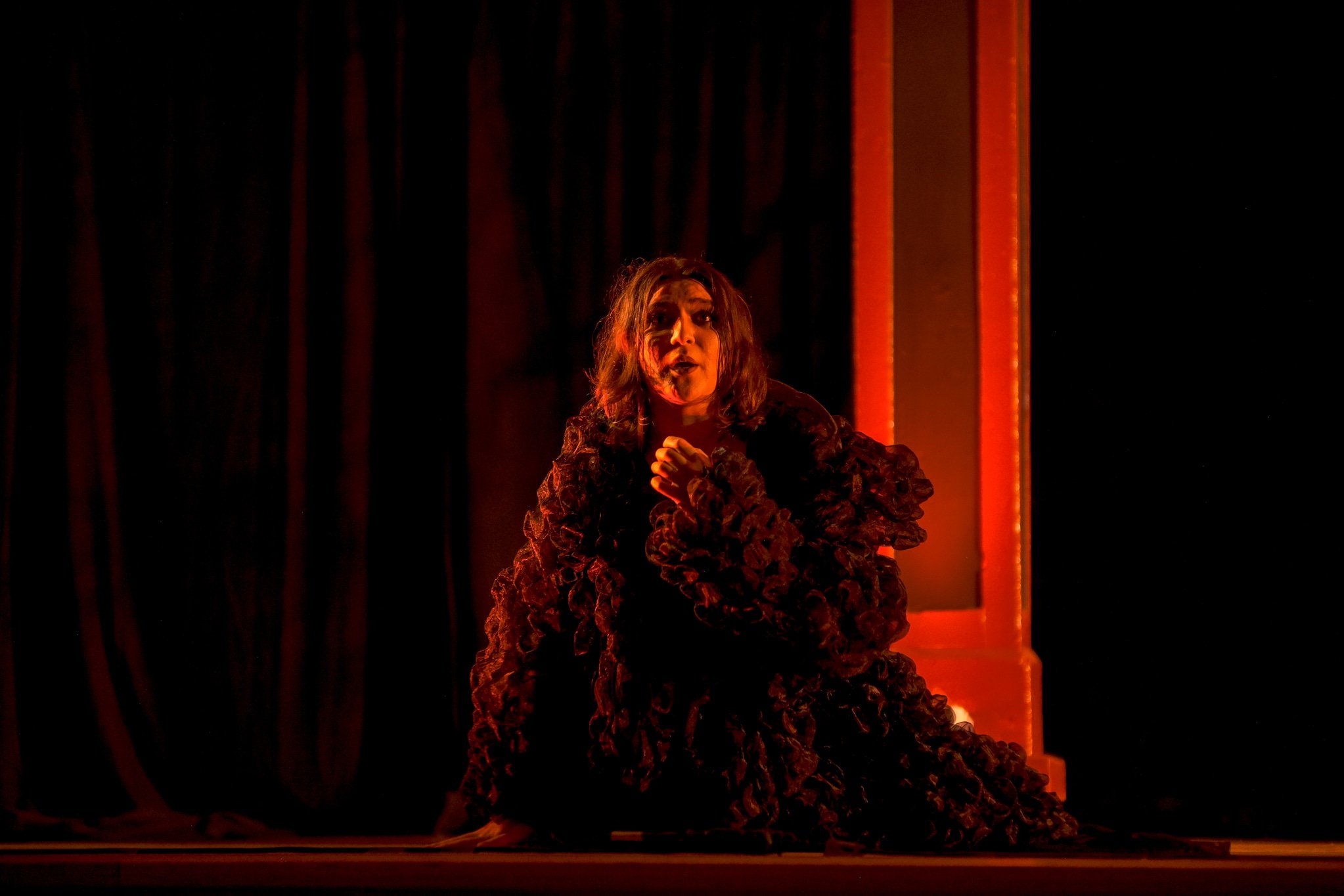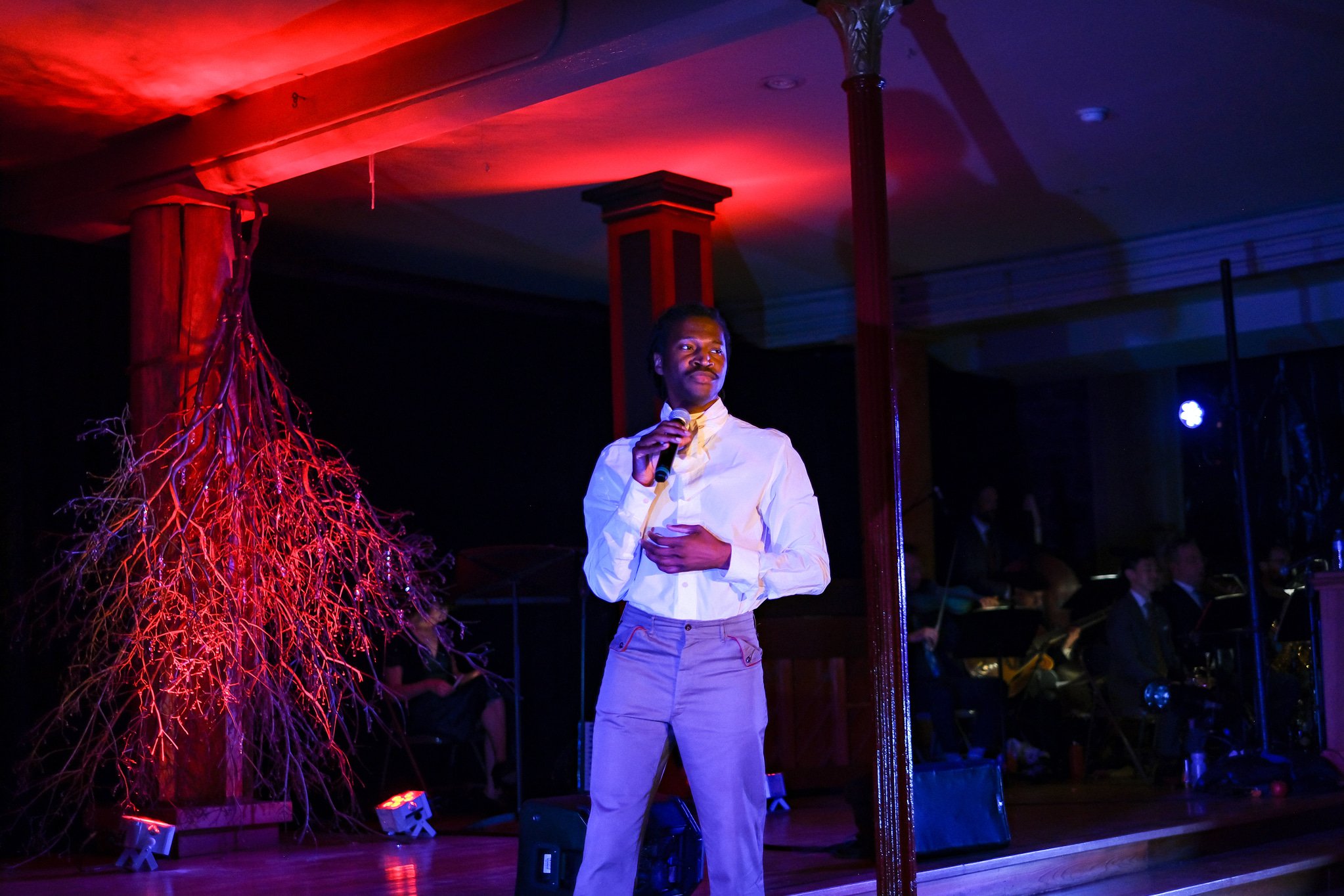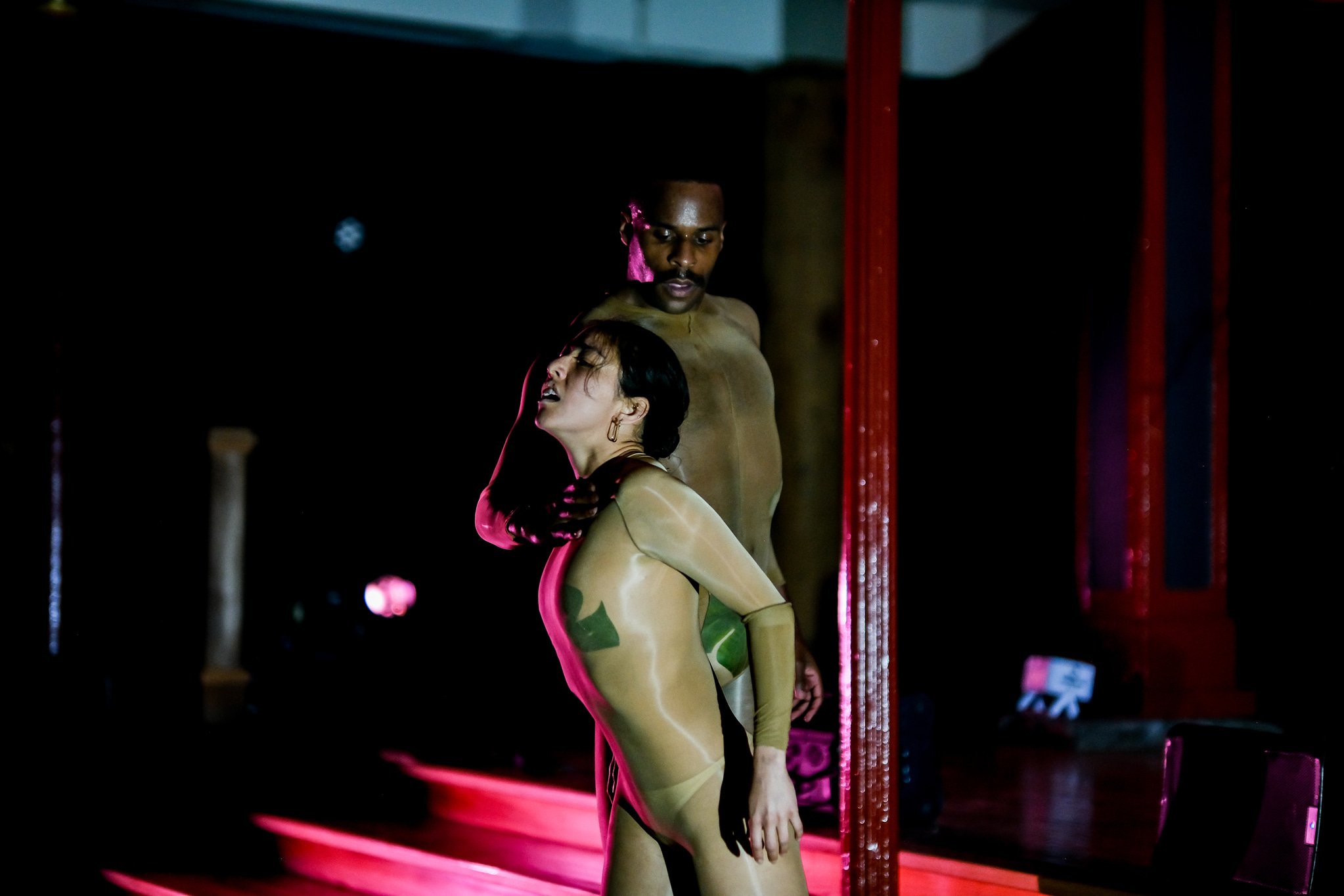Tiergarten: And Then There Were None
“Then they came for me
And there was no one left
To speak out for me”
—— Martin Niemöller
On Friday night, April 19, 2024, the Church of St. Mary on the Lower East Side was transformed into an immersive 1920s Berlin speakeasy named “Tiergarten” as part of Carnegie Hall’s Weimar Festival, paying homage to the sprawling park that witnessed the rise of the Nazi regime. Directed by Death of Classical founder Andrew Ousley, and featuring music by The Grand St. Stompers, this underground cabaret promised period-themed food and drinks, vintage dress, and a magnificent Great Hall setting. I arrived in the middle of “Pirate Jenny,” the fourth number of the night from The Threepenny Opera by Kurt Weill. Pushing aside heavy drapes, I was engulfed in a seductive yet unsettling world. Shadow puppets played out the scene in stark black-and-white, with only the crimson burst of cannonfire threatening to wipe out the town. It set an ominous tone for a night that would shepherd us through a dark and pivotal time, riddled with the anxieties of our own uncertain age.
Kim David Smith, our mesmerizing master of ceremonies, channeled the spirit of Marlene Dietrich as he graced the stage in a vintage Mugler gown and a top hat, curated by the brilliant stylist Fay Leshner. His voice shifted seamlessly from world-weary cynicism to disarming sincerity, laying bare the absurdity and cruelty of war in “And the Band Played Waltzing Matilda,” a tightrope walk between mordant satire and heartfelt lament.
The night unfolded as a study in contrasts. Aaron Reeder sang “The Liberty Song” with idealistic fervor, only to have Amara Granderson pull him back to earth with the restrained anguish of “Strange Fruit.” Clad in a simple white gown, she seemed like a fallen angel, bearing witness to the unspeakable. As she gave voice to the lynching scene, the audience cheered her vocal prowess. But their applause felt jarringly out of place, a too-quick pivot from horror to ovation that echoed our uneasy relationship to the darkest chapters of our history.
At times, the show felt like gazing into a funhouse mirror — one that both distorts and magnifies the grotesqueries of human nature. Melina Jaharis captivated with their intense performance of “Stride la vampa” from Il Trovatore, falling to the ground and springing up again. The witch’s anguish, embodied by Liana Zhen-ai, became a spectacle, their pain almost eroticized under the male gaze. In a haunting contemporary dance to “This Bitter Earth/On the Nature of Daylight,” Zhen-ai and Dylan Contreras laid bare the turbulent dynamics of intimacy and power. He grasped for control, trying to pull her closer by a string around her neck, but she slipped free. He fired at her and she fell to the ground, calling to mind Oscar Wilde’s line, “Each man kills the thing he loves.” But she rose again, a bird that could not be caged, a spirit that could not be broken.
Smith’s scathing commentary spared no one, his quicksilver wit skewering everything from the hubris of ancient Rome’s “smart men” to the perils of modern-day groupthink and “cancel culture.” When Pearls Daily, dubbed “the it girl of burlesque,” took the stage as a drag king and subversively stripped to “Nature Boy,” centuries of dogma and strictures seemed to crumble away with each discarded layer, revealing the essential humanity beneath. Her performance was a provocative reminder of how we often adorn and utilize religion to suit our own purposes, only to turn to it in earnest when we are at our most vulnerable and in need of answers.
Throughout the night, even as Smith winkingly critiqued the “senseless waste” of the Weimar Republic, the audience were content to indulge in our own drinks and escapism. But I felt a renewed sense of urgency in the hopeful “Lost in the Stars,” whose music connected us to the very origins of the universe, reminding us that every ending contains the seeds of a new beginning. As the ensemble launched into a joyful rendition of “All the Lovers” by Kylie Minogue, Smith left us with a poignant message: “History is not written for us. It is written by us … We have love, and we have each other.” And that may be the most potent act of resistance of all.
- Written by Chloe Yutong Yang
- Photography by Kevin Condon



